#Pulitzer prize photos
Explore tagged Tumblr posts
Text
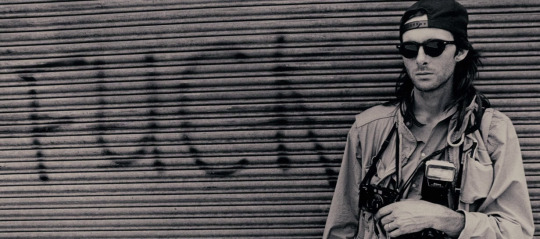
Kevin Carter, (1960-1994)
#photographers on tumblr#biography#magnum photos#b&w photography#b&w aesthetic#photography#film photography#pulitzer prize
18 notes
·
View notes
Text

#us politics#my mom and i paused the TV to stare at that photo in awe and borrow#the flag is even almost upside down#like the perversion of u.s. ideals spread by trump#my mom literally said ‘that picture is winning the pulitzer prize’#the unprecedented times sure do be something jeez
11 notes
·
View notes
Text
“She weeps, but war cares little for tears or the children that shed them.” ~ Peter Newman
As the debate continues, this iconic image stands as a stark reminder of the horror of war.
#photography#war correspondent#Vietnam War#The Terror Of War#napalm girl#Pulitzer Prize#The Associated Press#photo journalism
0 notes
Text
X
#the photographer who got that picture of trump#should genuinely win the Pulitzer Prize for photography#it’s going to be the photo that defines the lives of a generation
1 note
·
View note
Text
in honor of that anon who said jews have done nothing for the world, here’s a non exhaustive list of things we’ve done for the world:
arts, fashion, and lifestyle:
jeans - levi strauss
modern bras - ida rosenthal
sewing machines - isaac merritt singer
modern film industry - carl laemmle (universal pictures), adolph zukor (paramount pictures), william fox (fox film forporation), louis b. mayer (mgm - metro-goldwyn-mayer), harry, sam, albert, and jack warners (warner bros.), steven spielberg, mel brooks, marx brothers
operetta - jacques offenbach
comic books - stan lee
graphic novels - will eisner
teddy bears - morris and rose michtom
influential musicians - irving berlin, stephen sondheim, benny goodman, george gershwin, paul simon, itzhak perlman, leonard bernstein, bob dylan, leonard cohen
artists - mark rothko
actors - elizabeth taylor, jerry lewis, barbara streisand
comedians - lenny bruce, joan rivers, jerry seinfeld
authors - judy blume, tony kushner, allen ginsberg, walter mosley
culture:
esperanto - ludwik lazar zamenhof
feminism - betty friedan, gloria steinem, ruth bader ginsberg
queer and trans rights - larry kramer, harvey milk, leslie feinberg, abby stein, kate bornstein, frank kameny, judith butler
international women's day - clara zetkin
principles of journalizm, statue of liberty, and pulitzer prize - joseph pulitzer
"the new colossus" - emma lazarus
universal declaration of human rights - rene samuel cassin
holocaust remembrance and human rights activism - elie wiesel
workers rights - louis brandeis, rose schneiderman
public health care, women's rights, and children's rights - lillian wald
racial equity - rabbi abraham joshua heschel, julius rosenwald, andrew goodman, michael schwerner
political theory - hannah arendt
disability rights - judith heumann
black lives matter slogan and movement - alicia garza
#metoo movement - jodi kantor
institute of sexology - magnus hirschfeld
technology:
word processing computers - evelyn berezin
facebook - mark zuckerberg
console video game system - ralph henry baer
cell phones - amos edward joel jr., martin cooper
3d - leonard lipton
telephone - philipp reis
fax machines - arthur korn
microphone - emile berliner
gramophone - emile berliner
television - boris rosing
barcodes - norman joseph woodland and bernard silver
secret communication system, which is the foundation of the technology used for wifi - hedy lamarr
three laws of robotics - isaac asimov
cybernetics - norbert wiener
helicopters - emile berliner
BASIC (programming language) - john george kemeny
google - sergey mikhaylovich brin and larry page
VCR - jerome lemelson
fax machine - jerome lemelson
telegraph - samuel finley breese morse
morse code - samuel finley breese morse
bulletproof glass - edouard benedictus
electric motor and electroplating - boris semyonovich jacobi
nuclear powered submarine - hyman george rickover
the internet - paul baran
icq instant messenger - arik vardi, yair goldfinger,, sefi vigiser, amnon amir
color photography - leopold godowsky and leopold mannes
world's first computer - herman goldstine
modern computer architecture - john von neumann
bittorrent - bram cohen
voip internet telephony - alon cohen
data archiving - phil katz, eugene roshal, abraham lempel, jacob ziv
nemeth code - abraham nemeth
holography - dennis gabor
laser - theodor maiman
instant photo sharing online - philippe kahn
first automobile - siegfried samuel marcus
electrical maglev road - boris petrovich weinberg
drip irrigation - simcha blass
ballpoint pen and automatic gearbox - laszlo biro
photo booth - anatol marco josepho
medicine:
pacemakers and defibrillators - louise robinovitch
defibrillators - bernard lown
anti-plague and anti-cholera vaccines - vladimir aronovich khavkin
polio vaccine - jonas salk
test for diagnosis of syphilis - august paul von wasserman
test for typhoid fever - ferdinand widal
penicillin - ernst boris chain
pregnancy test - barnhard zondek
antiretroviral drug to treat aids and fight rejection in organ transplants - gertrude elion
discovery of hepatitis c virus - harvey alter
chemotherapy - paul ehrlich
discovery of prions - stanley prusiner
psychoanalysis - sigmund freud
rubber condoms - julius fromm
birth control pill - gregory goodwin pincus
asorbic acid (vitamin c) - tadeusz reichstein
blood groups and rh blood factor - karl landsteiner
acyclovir (treatment for infections caused by herpes virus) - gertrude elion
vitamins - caismir funk
technique for measuring blood insulin levils - rosalyn sussman yalow
antigen for hepatitus - baruch samuel blumberg
a bone fusion technique - gavriil abramovich ilizarov
homeopathy - christian friedrich samuel hahnemann
aspirin - arthur ernst eichengrun
science:
theory of relativity - albert einstein
theory of the electromagnetic field - james maxwell
quantum mechanics - max born, gustav ludwig hertz
quantum theory of gravity - matvei bronstein
microbiology - ferdinand julius cohn
neuropsychology - alexander romanovich luria
counters for x-rays and gamma rays - robert hofstadter
genetic engineering - paul berg
discovery of the antiproton - emilio gino segre
discovery of cosmic microwave background radiation - arno allan penzias
discovery of the accelerating expansion of the universe - adam riess and saul merlmutter
discovery that black hole formation is a robust prediction of the general theory of relativity - roger penrose
discovery of a supermassive compact object at the center of the milky way - andrea ghez
modern cosmology and the big bang theory - alexander alexandrovich friedmann
stainless steel - hans goldschmidt
gas powered vehicles
interferometer - albert abraham michelson
discovery of the source of energy production in stars - hans albrecht bethe
proved poincare conjecture - grigori yakovlevich perelman
biochemistry - otto fritz meyerhof
electron-positron collider - bruno touschek
3K notes
·
View notes
Text
anatomy of desire, satoru gojo

part i. terminal velocity
with mysterious circumstances centering around a first year med student's "suicide", you do something stupidly noble: reporting to a detective that you saw satoru gojo slipping out the backdoor of the very same building yu haibara supposedly jumped from. in doing so, you start a twisted, sick game of cat-and-mouse with the most powerful and insane student on campus. the only thing keeping you alive? the fact that satoru gojo is apathetic towards everything and everyone, besides you. ( fem!reader )
chapter contains description of dead body word count 3.7k [ next ] [ masterlist ]

There’s an ongoing joke that only those who attend Tokyo Metropolitan College are privy to. It’s posed as a question, serves to make people laugh, but like all things spoken by these students, the intention of the words said are different from what they’re truly asking. It goes like this:
How much was your application fee?
The joke is the idea that any of them would ever actually have to pay something as plebeian as an application fee to attend a college their parents or family have attended for generations. The “joke” has layers to it, though: how much did your parents have to cough up to get you in here? Did they only “donate” a new building? Did they agree to sponsor the next charity event hosted by the university? Or did Mother and Father only have to invite the head of admissions to a dinner party? For children who come from money, social currency holds a significant amount of value in their eyes.
With an acceptance rate lower than most of the Ivies, alumni that consist of the world’s most powerful political leaders, actual royalty, and the most influential celebrities in the public eye, and the prestige that comes from graduating from such a decorated institution, attending Tokyo Metropolitan College should have been impossible for someone like you.
Full ride scholarships to TMC are nearly unheard of and are only extended to the best high school athletes or the brightest minds of the current generation. You’re smart, of course, but not at the caliber Tokyo Metropolitan demands.
With your worn-out bookbag, drugstore makeup routine, and outlet clearance shoes, it’s obvious that you’re a scholarship student. Your classmates might have been willing to ignore your crime of being poor, but not even being able to at least wear last season’s runway designs? Some sins are just unforgivable.
It’s fine by you, of course. You’re nothing but honest, and so if you were to ever be asked the cost of your application fee, you’re not sure how they would react when you confess that it cost a life.

You fall in love with journalism when you’re ten years old. At the clearance grocery stores, the type of shops whose air conditioning never seems to work and there’s a perpetual leak at one area of the ceiling, there’s a rack of magazines (your mother tells you these are called “tabloids”) by the checkout line. Of course, there’s usually only one cashier working out of the entire store, and you spend most of your time waiting in line than you do actually picking out your groceries.
While your mother shuffled her coupons clipped from last week’s newspaper, you would grab the latest issue of National Enquirer, your eyes eagerly soaking up every last word of the publication. Outlandish headlines, anonymous sources, poorly Photoshopped paparazzi photos — this tabloid is your first taste of journalism. It might not be Pulitzer Prize worthy articles, but it is the spark that ignites your insatiable, burning hunger for a story. A true story.
As you grow older, you swap National Enquirer for National Geographic and Time, going so far as to even grabbing your father’s discarded newspapers from the recycling bin whenever you catch a glimpse of an enticing headline. Everyday, there are hundreds, thousands, millions of stories, all happening at once. Depending on who’s telling the story, the immortalized version of events could very well differ from the truth. And at your young age, when you declare to your entire middle school class that you’re going to be the world’s best investigative journalist who uncovers and reports only the truth, you are met with polite, bored applause.
Looking back, you realize just how silly you were. You used to walk around with a Hello Kitty notepad, one of those jumbo sized book fair pens (the one where it comes with like, five different colors you can pick from), and an annoying habit of never minding your own business. It pays off eventually, though. Your inquisitive (all the adults call it nosy) nature and hunger to get to the bottom of things leads you to find out that your seventh grade homeroom teacher was stealing money from the classroom’s activity funds. You got your picture in the local paper (it still hangs on the kitchen fridge, even after all these years), and the school principal even encourages you to start a school newspaper club.
You fear you’ve peaked in the seventh grade, though. It’s been nearly eight years since that incident, and you haven’t quite uncovered anything else that’s newsworthy. You suppose the hot topic on campus right now could be worth getting to the bottom of: did Mei Mei get a boob job or not? If you figure out the truth behind that, maybe then people will actually start to care about what you have to say.
Good stories don’t just fall into your lap; most journalists don’t spend their time sitting at their desk, typing up their finds. Instead, they’re actually on the ground, actively hunting.
You tell yourself — justifying your eavesdropping, really — that this is just you hunting for a good story. Besides, if the conversation was meant to be so private, why wouldn’t he at least have it in his dorm room?
“Listen, Ken — after tonight, I’ll be set for life.” The hushed whisper immediately catches your attention. You pause, glancing behind you to see if anyone’s coming. They’re not. The Liberal Arts Education building houses the least amount of students here at Tokyo Metropolitan, and everyone’s either already in class or getting lunch off campus. No one even bothers with this outdoor walkway; it’s too cold to justify walking in the shade the overhead supplies, and the vending machines located here never have any of the good snacks — just stale packs of peanuts and the brand of soymilk no one likes.
You don’t make a habit of listening in on people’s phone calls. You have some concept of boundaries. It’s just… The Liberal Arts class is such a small group of fish in an already small pond. You’ve run into everyone who has a reason to be in this building. You were forced to take Public Speaking with at least half of them, and this voice you don’t recognize.
That, and everyone who can afford to spend years at college, stress-free and getting a degree in the arts, don’t need to make hushed phone calls behind unwanted vending machines to discuss how they���re going to be “set for life.” Ninety-nine percent of the student body here already are.
“Just trust me,” the voice mumbles. “I’ve got it all under control.”
You’re really trying your hardest to fight the urge to listen, but you can feel it — that sense in your gut that tells you that this is a story worth pursuing. Who cares about whether or not Mei Mei got a boob job? Whatever this student is up to is certainly of more interest than breast implants.
When he stops talking, you recognize that he must’ve hung up the phone. Trying to remain casual, you continue to walk towards the vending machines, and when he comes into view, walking in the opposite direction of you, you briefly glance at him.
Brushed brown hair, slightly taller than you — kind of cute, actually.
“Excuse me,” you call out to him. He stops to turn at you, a polite smile stretching across his face.
“Yes?”
“Do you happen to know where room L203 is? I just switched to that Japanese Literature class, but I’m still trying to navigate this building.”
“Hmm.” He takes a second to appear in deep thought. “I’ve never had to take the course, but L203 should be on the second floor, left side.”
“Thanks!” You chirp out, letting him go on his way. A majority of the buildings here are built similarly; the first number always dictates which floor the room is on, and odd numbers go to the left, with even numbers on the right side of the hall. You know damn well where L203 is; you just needed a second to commit this student’s face to memory. That, and you wanted a good look at the embroidery on his black jacket.
It says Tokyo Metropolitan College Zenin School of Medicine.

One thing about medical students is that they (and the college) can never seem to let anyone forget, for even a split second, that they are a medical student.
You immediately head to your dorm, cracking open your 2006 MacBook that begs dearly for you to put it out of its misery every time you power it on, and wait impatiently as the website for the Zenin School of Medicine page to officially load. Every year, the administrative team at the med school makes a big deal out of welcoming the newest incoming class, and you’re hoping that he, whoever he is, has been enrolled within the last three years. You’re not sure your laptop can handle clicking through more than three links in the timespan of five minutes without excessively overheating and then exploding on your dorm room’s desk.
You luck out when you realize he’s from this year’s incoming class. The picture is taken outside, in the familiar quad in front of the med school’s buildings. There’s only about a dozen students entering, and you spot his bright, smiling face. To the untrained eye, he fits in well with the rest of his peers. Nothing about him appears to be different, but three years learning to navigate this world has taught you well: he doesn’t have the same social standing as these students. In a sea of On Clouds (for the active students, you presume) and Dior sneakers, he’s wearing a pair of Skechers.
You squint at the small font of the caption, listing the students from left to right.
Yu Haibara.
When you search his name on the school’s site, another article appears, confirming your suspicions.
Yu Haibara, Latest Recipient of the Zenin Merit Medical Scholarship. Every other year, the Zenin Family provides a scholarship to a promising individual who will “change the medical field for the better.” With his easygoing smile and genuine attempt at being helpful, you can believe it. Yu Haibara seems like a very nice guy.
Which is why, in the glow of the setting sun, you feel a bit guilty for tailing him. No matter what he does, it’s not even like it’s going to be something publishable for the school paper. Putting a first year medical student’s side hustle on blast isn’t anything newsworthy; you know this. The rational part of your mind tells you to go back to your dorm and actually start working on your history paper due next week. You know, something actually productive and beneficial for your future.
But the gut feeling you’ve never been good at ignoring… It tells you that the hunt is on. There’s something here for you to uncover, and even if you have to keep it a secret to yourself, the satisfaction of satiating your curiosity will be enough.
Following Yu isn’t really a hard thing to do. This side of campus is unsurprisingly busier than the side you normally stay on. There are more bodies for you to blend in with, more noises to disguise your footsteps, and Haibara doesn’t even seem to be paying much attention to his surroundings. He walks with his arms swaying by his sides, and he makes casual, fleeting conversation with a few faces you recognize from the class photo on the school’s website. You’re hoping that wherever he’s heading to isn’t his dorm; if it’s secrecy he wants, it would make sense for him to do everything in the privacy of his own residence, but—
“Hey, girl, what’re you doing over here?” Distracted by the greeting, you take your eyes off of Haibara’s back to look at who’s speaking to you. Sakura; you share a good portion of classes with her. You remember her mentioning a boyfriend who’s in medical school. Something about her making an offhand joke about being a future surgeon’s stay-at-home wife. It’s not like working was something she was actively going to do in the future, anyway. Her mother is a hotel heiress, and her dad owns a hefty share of Vogue.
“Sakura, hey!” You smile at her, trying to peek over her shoulder. Haibara makes a left turn, you note. “I wanted to meet with a professor here, actually. To see if he wanted to give an interview on his research. Running out of article ideas for the school paper, honestly.”
She crinkles her nose. She works for the school paper with you, too, but she’s never paid much attention to anything beyond her submissions to the Beauty & Fashion column. “Have fun with that.”
“Definitely will.” You chirp, glad that Sakura’s not the type to care about what some old doctor has to say about cancer. The sidewalk is crowded with students grouping together, discussing where they want to eat out tonight, but as you make a left turn, trying to follow Haibara’s steps, you notice that the lampposts lining the walkway are fewer and farther between. It’s still not dark enough to really need their warm, yellow glow, but you’re certain you’ll need them on the walk back.
There are less students frequenting this area, too. The buildings here are older, less maintained. You doubt any of the major classes are held here, and the only building you can really justify Haibara disappearing into would be the one at the end of this walkway. A three story brick building, whose large sign can be read even at your distance.
OLD KASHIMO LABORATORY.
Old certainly seems fitting. You wonder if the building is even still in use.
Leaves crunch under your sneakers (that are unfortunately not straight from Rick Owens’ latest drop) as you continue to move forward, heading to the lab. It’s a big building, and it seems a shame that it isn’t as well-maintained as the front-facing buildings that make up the medical school. Your legs are practically burning by the time you make it to the steps leading to the front door. If you realized just how far of a walk it is from your dormitory to the complete other side of campus, you would have at least stretched first.
Anything to get down to the truth, though.
Selfishly, you hope whatever Haibara’s up, it’s something scandalous. If it’s boring, and your gut feeling is entirely wrong, you’re going to be so annoyed that you got your daily steps in for no reason.
Pushing through the large oak double-doors of the building takes some effort, but when you do, you realize the lights here, unlike the other buildings you’ve been in, aren’t triggered automatically by movement. At least the windows all over the walls allow the fading light of the setting sun to filter through the massive entrance.
Way down on the other end, you see it. A silhouette of someone else; you see them, but you’re shocked you don’t hear them.
Haibara?
No. Even from this distance, this figure seems taller than the brunet boy you’ve been stalk— following — for the past hour. The figure pays you no attention, but when it opens the backdoor, for a split second, they’re — he’s — bathed in the glow from the nearby lampposts and sunset.
White hair, sharp jawline, broad shoulders, and even at this angle, his sharp, blue eyes that are recognizable anywhere.
Satoru Gojo.
The difference between college and high school is that in high school, it’s pretty common to have a few people designated as “popular.” College is different. Everyone is a grown adult now, whether they like it or not, and concepts as juvenile and irrelevant as “popularity” no longer matter.
At a school like Tokyo Metropolitan, though, social hierarchy is everything. A school this small, this exclusive, this prestigious, thrives because parents send their little heirs and heiresses here in order to network. These kids grew up trading Pokemon cards by utilizing tips from The Art of the Deal.
In a small group where only the wealthy and influential are allowed in, Satoru Gojo comes from the wealthiest and most influential family there is. His father has global politicians trying to cozy up to him, and his mother comes from a family who supposedly made their fortune off of blood diamonds (naturally, the Gojos deny this claim, squashing any speculation about how the wife’s family made their money by spamming the news with nothing but reports of their charitable acts). Instead of pursuing business, Gojo makes headlines by his father announcing how proud he is that his son is choosing the noble path of medicine.
“He’s all about helping people,” the reporter quotes Mr. Gojo.
That must be true; it’s why Gojo’s so known all over campus. It’s not enough that socially, he’s better than all of them, which makes being his friend all the more appealing. It’s the fact that he’s just a good guy. You remember how last year, the school paper did an article on how Gojo funded the entire extravagant retirement party for a beloved professor at the school. You heard a rumor that the one and only time he was late to class (by three minutes) was because he was helping a student get her kitten out of a tree. During his undergrad, he was captain of the basketball team and took them to the championships every year. He does all of this while remaining absolutely humble, kind, and top of his class.
You wonder if there’s a story there. If maybe Satoru Gojo, who is too perfect to be real, isn’t real. Maybe his parents figured out where to get their hands on an ultra-realistic robot, something that poses as the perfect son. That would explain his eyes, you think.
You’ve always tried to see the appeal in Gojo. He’s handsome, yes. He’s nice, no doubt about it. You don’t think you could find anyone with a single bad thing to say about him. But during your freshman year at this school, you think about the moment where you had to fill in for the school’s photographer. You had to photograph Gojo accepting an award for being MVP on the basketball team (once again), and while Gojo was charming everyone, from the coach to the dean of the school to the girls in the crowd cheering him on, there was your gut feeling telling you that something was just off.
“You’re not the usual photographer, are ya?” He peers down at you, hands in his pockets, a big grin on his face. He’s not teasing you, at least, not in a rude way. He just has a light-hearted inflection on all his words that makes everything he says seem… warmer? Like, he’s trying to put you at ease.
You’re fiddling with the settings on the camera, unused to the tech. “Um, yeah. I’m a freshman, but I’m just subbing in for my senior who got sick.”
“Really? That’s neat!” He says it, and it sounds so sincere, that you nod along. Yeah, maybe it is neat.
(Gojo’s good at that. Putting people at ease, getting them to see things from his point of view.)
“Try your best to make me look good, and I’ll do my best to make sure whatever shot you get is fine! Deal?” He’s still smiling at you, and all you can do is nod. Even at this point in time, a fresh-faced baby to this school, you’re aware of Gojo’s power. When you’re looking at him through the lens of the camera, you think it’d be impossible to get a bad photo of Gojo.
The uneasy feeling you get around him gets chalked up to nothing more than nerves. You’re a writer, not a photographer. Gojo is a legend amongst men, and being in such close proximity to him would make anyone nervous.
But when you look back at the photo once the article gets published, you know why you felt so weird around him.
When Satoru Gojo smiles, it doesn’t reach his eyes.

You’re not sure why Gojo is — or, more accurately, was — in this building, but it’s none of your business. You’re here for Haibara, and whatever weird ass, secretive but lucrative side hustle he’s got going on. Probably dropshipping. Or, maybe he’s selling old test banks?
Chances are, it’s nothing special or noteworthy. The reason why you haven’t gotten a good story lately might simply be because your senses, your so-called reliable gut instinct, has just gone dull. Maybe you’ve never even had a good instinct to begin with. Or, maybe losing it is just the karma you deserve for everything you’ve done to get to where you are now. It would serve you right, wouldn’t it? The universe must have a taste for poetic justice sometimes.
You’re hungry. Your legs are sore. It’s getting late. Whatever Haibara has going on, you don’t care anymore. You’ve got a paper due, and a protein bar somewhere in the bottom of your book bag that will serve as dinner for tonight because you don’t have enough funds to get anything halfway decent at the dining hall, and what a waste of time today was.
You’re opening the doors of the building, letting the cool evening breeze hit you in the face as you exit. You still need something to write for the school paper; the lie you told to Sakura might actually be the only valid idea you have, and—
“Holy fucking shit! Is he dead?!”
You look to your right. There’s a trio of students gathered around a lump on the ground. Someone’s screaming, then they’re all screaming. More students are flooding out of nearby buildings, and despite the protest of your limbs, you turn and head right where the screams are coming from.
Bringing your hand to your mouth, you barely manage to hold back your own scream.
Lying on the concrete walkway is Yu Haibara, with his neck and body at two different odd angles, his head cracked open and spilling blood that leaks onto the manicured grass of the campus.
#satoru gojo x reader#satoru gojo x you#gojo x reader#jjk x reader#yandere jjk#series: anatomy of desire
233 notes
·
View notes
Text
im so fucking tired of people praising will navidson as if he's some huge hero. like sure he won a pulitzer prize or whatever but that was for his photographs of PEOPLE ABOUT TO DIE. why are we enabling this guy? like he could've saved those god damn people he keeps taking photos of but NOOO he values his career over basic human fucking life. well it turns out he's moved to virginia a few months ago (or maine? idk maybe he's just there on vacation) and that's where i'm located rn (my parents are here on our monthly vacay) and so ive decided to protest in front of his house. gonna be doing some great activism y'all
439 notes
·
View notes
Note
I don't have a comics "take" to offer up necessarily--but I want to see a Superman run where Clark Kent is essentially J. Jonah Jameson. Constantly finding reasons to just shit on Superman and belittle all of his efforts. Superman is of course just as heroic as usual, but I want to see him having fun writing a bunch of tabloid bullshit about himself.
He is the single least popular editor the Daily Planet has ever had, but it's the age of clickbait and engagement farming, so he's also the most successful. His most famous editorial rant is the one where he claims that Superman must have destroyed Krypton himself, since it's veeeeeery suspicious that somehow a baby just happened to survive while no one else did. Very suspicious indeed. And all these Kryptonian expats that keep coming to Earth to fight Superman must be looking for revenge for their murdered homeworld. If the forces of Earth would just stand back and let these freedom fighters take the filthy alien off their hands, it would save countless lives. They might even stop trying to conquer Earth. No more precious human lives lost on account of an alien!
(Lois reads this in utter disbelief. "Clark...are you appealing to racism to keep people from getting hurt during your fights?"
"Why not? Nothing else has worked. And the term is super xenophobia.")
Aside from Lois, who hates what Clark is doing but loves the free reign he gives her to investigate any story she wants, and Ma, who doesn't read the paper anyway, the only non-hero who knows what Clark's doing is Lex Luthor. He sussed it out the first time he tried taunting Superman with a Kent editorial and Superman merely floated there looking pleased with himself. It took Lex about three seconds to really look at Kent's byline photo and realize he was Superman all this time! Lex is pissed, of course. How dare this alien take over humanity's free press and use it to spread his false propaganda! Compromised newspapers pushing a biased agenda? That's just unamerican! Lex immediately buys the failing Huffington Post, renames it the Lexington Times, makes himself Editor in Chief, and turns the editorial section into a daily rebuttal of every article Clark Kent posts. Lex's elegant arguments against Kent's "shortsighted xenophobia" and "reckless crusade against Superman" garner national acclaim. LexCorp stock is breaking records daily. And Superman's reputation has never polled so high! Lex isn't exactly pleased with the latter, but when you add the former to the fact that he's finally succeeding in thwarting Superman's schemes, he decides that he's come out ahead anyway. All is right in Lexworld-- no, in Lextopia!
Two weeks later he's named the Grand Marshall of Metropolis's annual Superman Day Parade and he realizes that he might have fucked up. Superman and Lex Luthor are linked so tightly in the public consciousness that not only can he never risk attacking the alien again lest his stock plummet, but shareholders are actually expecting him to support Superman. Overtly! His own board won't shut up about destroying their Kryptonite stockpiles and dismantling the anti-alien missiles. Even worse, they want R&D to start working on anti-Kryptonite armor that will make the damned alien even more powerful! Lex never should have bought the Lexington Times. No! He never should have went public! Worst mistake he ever made. LexCorp should have stayed a family company.
He is, of course, placed right next to Superman during the mayor's Superman Day commencement speech. The entire time he's standing there, a rictus smile on his face, he's muttering "I hate you I hate you I hate you I hate you I hate you" under his breath while he and Superman link arms and wave to the crowd.
Lois gets a great shot of Superman giving a surprised and bright red Lex Luthor a grateful hug, the American flag proudly flying high above their heads.
It wins her her first Pulitzer Prize for Featured Photography.
45 notes
·
View notes
Text

| entitled The Kiss of Life, this Pulitzer Prize-winning photo captured mouth-to-mouth resuscitation was captured by Jacksonville, Fla., photojournalist Rocco Morabito in 1967. Misterlemonztenth.tumblr.com/archive
#misterlemonztenth#popular#original post#male model#photo journalism#black and white#the kiss of life#telephone linemen#lifesaving procedure#mouth-t-mouth
60 notes
·
View notes
Text
Reuters’ Ethics and Standards editor told HonestReporting on Tuesday that the wire service “disputes” our “claim” that its journalists had “decorate[d] their office with terror symbols.”
This despite photo evidence we exposed last week showing scarves with terror groups insignias decorating what used to be Reuters office in Gaza in 2013:

The man in the photo is Reuters current Head of Visuals for Gaza, Suhaib Jadallah Salem. The photo still appears on his Facebook page.
Like the Nazi Swastika, the emblems on the scarves are of genocidal groups — Hamas, Islamic Jihad, al-Aqsa Martyrs Brigades — that call for the killing of Jews/Israelis (like some of Suhaib’s colleagues in Reuters).
There are only two bad explanations to Reuters’ disturbing response: ” Either it doesn’t view these proscribed terror groups as such, or it is denying indisputable evidence.
The rest of Reuters Ethics and Standards editor Brian Moss’s official response did not address our exposure of its journalists in Gaza receiving awards from senior Hamas officials.
Instead, it said: “On the basis of a close review by the Reuters Ethics and Standards department, we dispute the distorted evidence and insinuations of bias in the HonestReporting September 5th article. We stand by our coverage of Gaza and our team, who operate within the Thomson Reuters Trust Principles…Further, we dispute any claim that our journalists received ‘de-facto bribes from terrorists.'”
But here are the facts, which HonestReporting stands behind:
Our review of Palestinian media revealed that since 2015, the proscribed terror group has hosted annual ceremonies to honor Gazan journalists who had won prestigious international awards, including photographers from Reuters.
This cozy relationship between Gaza’s terror groups and the journalists tasked with covering them objectively is ethically flawed. It exposes the disturbing entanglement between terrorists and the media, shaping a distorted global narrative about Gaza.
Honored by Terrorists
In 2017, Hamas held a commendation event for international award-winning journalists in Gaza, where it honored Reuters photographer Suhaib Jadallah Salem — the agency’s current head of visuals for Gaza (who was photographed in Reuters office in front of the terror groups’ scarves.)
One of the photos from the event shows Suhaib’s brother Mohammed Jadallah Salem, a Reuters photographer who recently won the Pulitzer prize and the World Press Photo award, receiving Suhaib’s commendation plaque on his behalf. Two senior Hamas officials are granting the plaque: Khalil al-Hayya and Mushir al-Masri:

Al-Hayya has publicly called for a fight against Israel as “the head of the serpent,” and al-Masri has vowed to “uproot The Zionists With Our Axes, Knives, Guns.”
Receiving commendation from such terrorists is a mark of Cain. It should get any journalist disciplined by any respectable media outlet.
Yet Reuters journalists — knowing perhaps that their bosses won’t find out or even care — had no qualms getting into bed with Hamas. Another photo from the event shows other Reuters journalists around a table not too far from al-Hayya: Reuters Senior Gaza correspondent Nidal al-Mughrabi is sitting near Suhaib’s brother Mohammed and photographer Ashraf Amra (who was also honored at the event and exposed by HonestReporting for endorsing infiltration into Israel on October 7). Beside them is Belal Jadallah, who headed the allegedly “independent” Gaza Press House:

Suhaib himself attended a separate Hamas commendation event for journalists later in 2017. This time, he was honored for performing the Muslim pilgrimage to Mecca:

Suhaib received the commendation from al-Masri and Hamas spokesperson Fawzi Barhoum (who have often been interviewed by Reuters), along with the movement’s media officials.
It’s worth noting that four of the Jadallah brothers work for Reuters, in Gaza and Dubai. And the links of the Jadallah family to Hamas go back years. One of the brothers of Suhaib and Mohammed, Sallah, was among the terrorists who kidnapped and killed Israeli soldier Nahshon Waxman in 1994.
The mastermind behind that operation was Moahmmed Deif, who was recently eliminated by Israel. As Hamas’ military chief, Deif was also one of the masterminds behind the October 7 massacre in southern Israel.
If Suhaib and Mohammed were professional journalists, such background wouldn’t necessarily matter. But if they have been hosted and honored by Hamas, it’s alarming.
Unethical Nexus
Top news editors probably know it’s impossible to be a journalist in Gaza without links to Hamas, which controls the information flow. In other words, professional journalism in Gaza is impossible, and news outlets should admit it to their audience.
But being hosted by Hamas, receiving its commendations, and displaying terror groups’ insignias isn’t a case of journalists even trying to be professional. This is an agenda-driven, cooperative, symbiotic, reciprocal, and personal nexus that benefits each side.
A Hamas statement from one of the commendation events said it best:
The media office of Hamas organizes this annual event to honor creative journalists for the fourth year in a row, in appreciation of their efforts in serving the Palestinian cause.
Journalists who violate the agency’s code of ethics by receiving de-facto bribes (or at least benefits) from terrorists to “serve the Palestinian cause,” and decorate their office with terror symbols, are not deserving of international praise or the defense of the Reuters Ethics and Standards department.
#reuters ethics and standards#reuters#reuters ethics and standards editor#media bias#hamas#gaza#suhaib jadallah salem#journalists
82 notes
·
View notes
Text

It’s finally here! The audiobook for “In the Distance” by Hernan Diaz (and narrated by Alexander Skarsgård) was released today by publisher @penguinrandomhouse. I’ve been posting about this in my IG stories since December 10th and shared a couple free samples of it from Spotify and AudioBooksNow. The narration is in English and takes 624 minutes to complete.
Description from his website: A young Swedish immigrant finds himself penniless and alone in California. The boy travels east in search of his brother, moving on foot against the great current of emigrants pushing west. Driven back again and again, he meets naturalists, criminals, religious fanatics, swindlers, Indians, and lawmen, and his exploits turn him into a legend. Díaz defies the conventions of historical fiction and genre, offering a probing look at the stereotypes that populate our past and a portrait of radical foreignness.
📸 The photo of Alex is by @christinefoto from Stockholm in 2022 for his @Thenorthmanfilm press tour. (Thanks for the idea, @kazzamological.) The remaining images are from the Penguin Randomhouse website.

31 notes
·
View notes
Text
Gwendolyn Brooks

Poet. Innovator. Cultural icon. Breaking through the constraints of conventional literature, she used the power of poetry to illuminate the rich tapestry of Black life. As the first African American to win the Pulitzer Prize for Poetry and the first Black woman to serve as Poetry Consultant for the Library of Congress, Brooks’s groundbreaking achievements challenged and redefined our cultural landscape. How does her art keep echoing through generations today?
Gwendolyn Brooks was born in 1917 in Topeka, Kansas, and raised in Chicago, where the realities of urban life shaped her early experiences. Growing up in a working-class environment, she witnessed firsthand the struggles and strengths of the Black community. These formative years provided the basis for her honest portrayals of everyday life and social conditions, which in turned influenced and shaped her later literary work.
In her early career, Brooks began publishing poems that captured the spirit of Chicago’s neighborhoods. Her debut collection, A Street in Bronzeville (1945), presented a candid look at the lives of Black residents and broke new ground by highlighting the vibrancy and hardship of the community. This work laid the foundation for her reputation as a poet who spoke directly and powerfully about the realities of race and class.
Her next major work, Annie Allen (1949), further solidified her standing in the literary world. This collection, which won her the Pulitzer Prize for Poetry in 1950 (the first African-American to receive such an honor), combined a social perspective with innovative poetic form. Brooks’s ability to blend personal narrative with broader social commentary was also demonstrated in later pieces such as the widely published poem “We Real Cool,” which connected with readers for its thoughtful depiction of youth and marginalization.
Beyond her published work, Brooks played an active role in the literary community. She organized public readings, led workshops, and mentored emerging writers in Chicago, fostering an environment where diverse voices could be heard. Her efforts helped to build a stronger, more inclusive literary culture that connected art with everyday social struggles.
Breaking institutional barriers, Brooks made history as the first Black woman to serve as Poetry Consultant for the Library of Congress. In this role, she worked to broaden the appeal and reach of poetry, ensuring that the art form addressed contemporary issues and reached a wider audience. Her work in this position reflected her commitment to both artistic excellence and public service.
Her career was marked by numerous prestigious accolades. In addition to the Pulitzer Prize, Brooks was honored with awards such as the National Medal of Arts, the MacArthur Fellowship, and the NAACP Spingarn Medal. These recognitions underscored her influence as a writer and her dedication to addressing themes of social justice, race, and identity.
Brooks passed away on December 3, 2000, but her legacy endures through her body of work and the impact she had on American literature and culture.
youtube
Photo Source: Chicago Literary Archive Source: Wikipedia Source: The Poetry Foundation Source: Britannica Source: Academy of American Poets
30 notes
·
View notes
Text

The Johnny Bright incident was a violent on-field assault against African-American player Johnny Bright by a white opposing player during an American college football game held on October 20, 1951, in Stillwater, Oklahoma. The game was significant in itself as it marked the first time that an African-American athlete with a national profile and of critical importance to the success of his team, the Drake Bulldogs, had played against Oklahoma A&M College (now Oklahoma State University) at Oklahoma A&M's Lewis Field. Bright's injury also highlighted the racial tensions of the times and assumed notoriety when it was captured in what was later to become both a widely disseminated and eventually Pulitzer Prize–winning photo sequence.
#black history#black tumblr#black literature#black excellence#black community#civil rights#black history is american history#oklahoma state university#american history#football history#college football#football
244 notes
·
View notes
Text
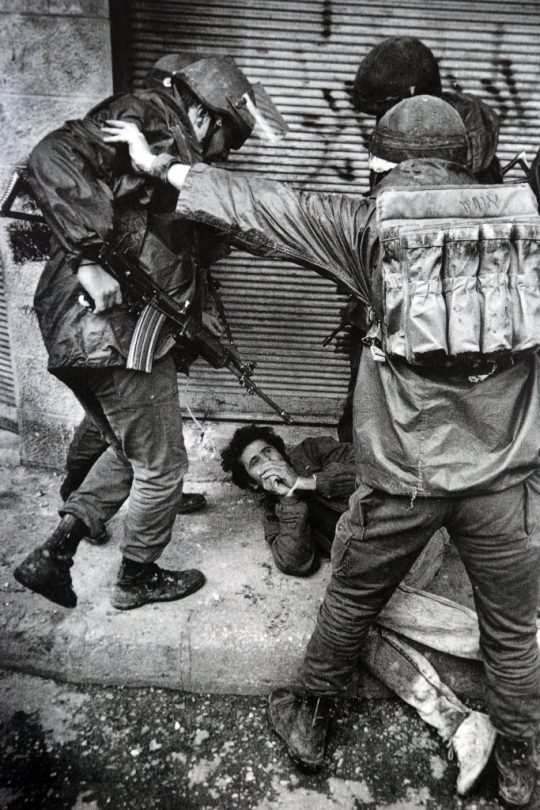
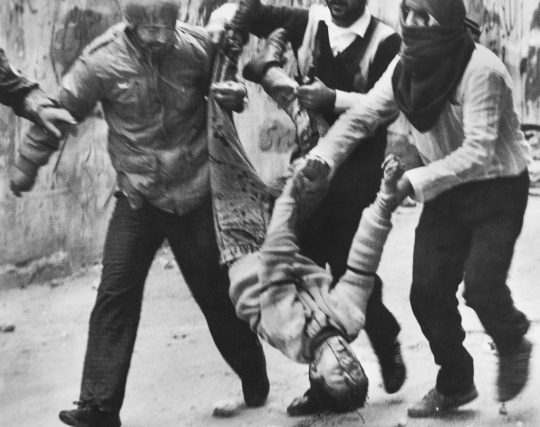
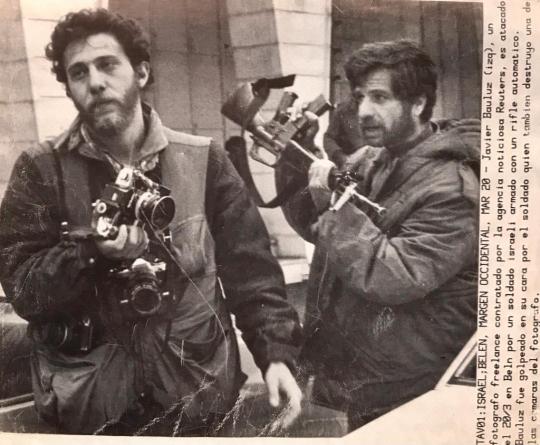
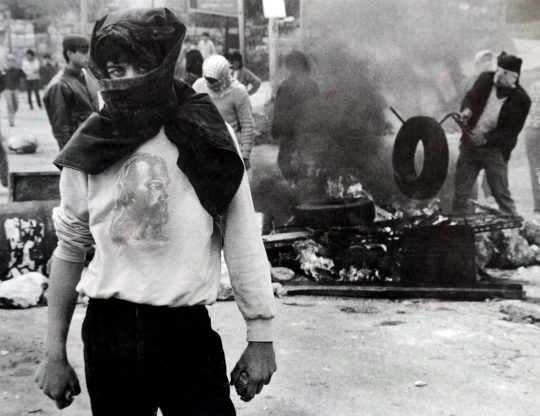


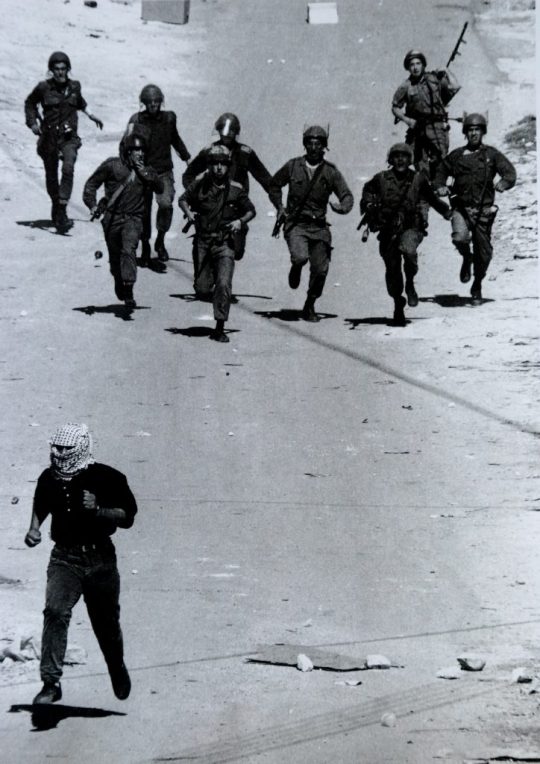
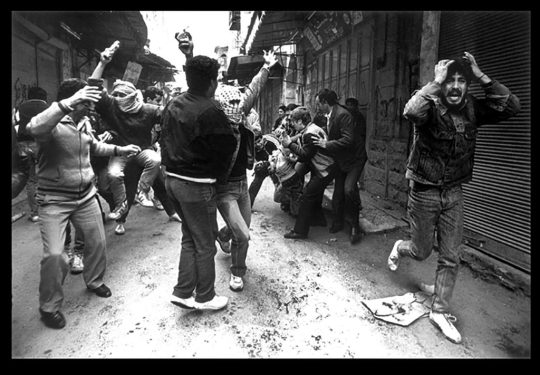


I've Seen: Impressions of a Photojournalist in the First Intifada!!
Javier Bauluz, winner of the Pulitzer Prize in 1995, recovers the photographs he took in Gaza and the West Bank in 1988 and a text written in the same year in which he recounts his experiences in the area.
All photos @javierbauluz
He visto: impresiones de un fotoperiodista en la Primera Intifada | Nortes | Centradas en la periferia
#free palestine #gaza #palestine #save gaza #free gaza #christmas eve #christmas #christmas day
#انتفاضة#فلسطين#القدس#غزة#تاريخ#صحافة#palestine#intifada#gaza#gaza strip#genocide#freedom#free gaza#gazaunderattack#gaza genocide#save gaza#i stand with palestine#israel#photography#photooftheday#photojournalism#1988#pulitzer#christmas#Merry Christmas#holiday#Happy Holidays#inspirational quotes#life quotes#artists on tumblr gouache painting cats illustration my art traditional art
155 notes
·
View notes
Text

John William Coltrane, also known as "Trane"
(September 23, 1926 – July 17, 1967), was an American jazz saxophonist and composer. Working in the bebop and hard bop idioms early in his career, Coltrane helped pioneer the use of modes in jazz and was later at the forefront of free jazz. He organized at least fifty recording sessions as a leader during his career, and appeared as a sideman on many other albums, notably with trumpeter Miles Davis and pianist Thelonious Monk.
As his career progressed, Coltrane and his music took on an increasingly spiritual dimension. His second wife was pianist Alice Coltrane and their son Ravi Coltrane is also a saxophonist. Coltrane influenced innumerable musicians, and remains one of the most significant saxophonists in music history. He received many posthumous awards and recognitions, including canonization by the African Orthodox Church as Saint John William Coltrane and a special Pulitzer Prize in 2007.
John Coltrane at his "Blue Train" session of September 15. 1957 at the Van Gelder Studio, Hackensack, New Jersey.
Photo by © Francis Wolff
A cropped version of the photograph was used on the original album cover.
https://www.facebook.com/TheWorldOfJazz
47 notes
·
View notes
Text

THE SECOND VULTURE:
In the 1990's there was a widely circulated photo of a vulture waiting for a starving little girl to die and feast on her corp. That photo was taken during the 1993/94 famine in Sudan, by Kevin Carter, a South African photojournalist, who later won the Pulitzer Prize for this 'amazing shot'.*
*However, as Kevin Carter was savouring his feat and being celebrated on major news channels and networks worldwide for such an 'exceptional photographic skill', he lived just for a few months to enjoy his supposed achievement and fame, as he later got depressed and took his own life!*
*Kevin Carter's depression started, when during one of such interviews (a phone-in programme), someone called in and asked him what happened to the little girl. He simply replied, "I didn't wait to find out after this shot, as I had a flight to catch..." Then the caller said, "I put it to you that there were two vultures on that day, one had a camera".*
*Thus, his constant thought of that statement, later led to depression and he ultimately committed suicide. Kevin Carter could have still been alive today and even much more famous, if he had just picked that little girl up and taken her to the United Nations Feeding Center, where she was attempting to reach or at least take her to somewhere safe.*
*Today, regrettably this is what is happening all around the world. The world celebrates stupidity and inhumane act, at the detriment of other. Kevin Carter should have taken the girl away from that place, which will cost him nothing, yet he didn't. Here is the inhuman posture, "he had all time to take his shot, but he had no time to save the girl's life".*
*Thus, we must all understand that, the purpose of life, is to also touch lives. So are you too a Vulture. In whatever we do, let humanity come first, before what we stand to gain out of the situation. In all we do let's always think of others and how we can be of benefit to humanity, how we can lend a helping hand and wipe away tears. Hence, when we seek knowledge, wealth, fame, skills or even positions, let's think of how we can use it to benefit the people and society at large.*
*Today, there is a lot of poverty in the land, so if our God Almighty has blessed you, be a blessing to others, extend a helping hand to those in need. Remember, you giving, is also a way of appreciating divine blessings, bounties, and favour of God Almighty upon you. Therefore, it is very important that we all should help the poor and needy, the orphans and widows amongst us, so that they can meet their needs. Please don't be a Kevin Carter, be human and think humanity.*
*Beware, we humans are not humans, if we lack humaneness in all we do.*
#FoodForThought
241 notes
·
View notes